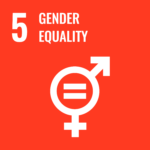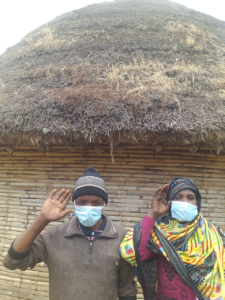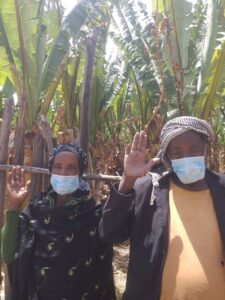International Women’s Day feature post by Morag Humble, Alinea’s Director of Health & Gender Equality, and Soyome Alemayehu, Gender & Nutrition Capacity Development Specialist for the Agricultural Growth Program-2 Capacity Development Support Facility, funded by Global Affairs Canada.
Choosing to Challenge gender inequality has been at the heart of both of our professional careers, which span more than 40 years combined. As the world marks International Women’s Day 2021, we are doing this work in a concrete way by supporting the transformation of gender roles with farmers in rural Ethiopia.

UN Sustainable Development Goal 5
Women smallholder farmers face many challenges in their daily lives, including inequitable access to and control over land, productive resources and information, as well as high burdens of household domestic labour. In this past year, the COVID-19 pandemic made their situation more precarious and increased women’s caregiving responsibilities. Currently, many women are struggling to keep their small agribusinesses alive.
Alinea is working in a hands-on way with women farmers to help them recover and grow their businesses. Through the Agricultural Growth Program-2 Capacity Development Support Facility, funded by Global Affairs Canada, we are using the Gender Model Family approach to bring together married couples or female household heads with older or adult male children to talk about the distribution of household labour.
Participants engage in exercises analyzing women’s and men’s roles and responsibilities, as well as access and control of resources and decision-making. Women and men then talk together about whether the distribution of work and benefits is fair for all family members, and if not, what could change to make the situation more equitable. This process leads to the development of household action plans.

Shukur Sherefa and Sadiya Radela
For men, this is often the first time they think about the many roles women juggle.
“I thought I was the only hard worker in the family, but now I realize that it is my wife who works restlessly for more than 16 hours every day,” said Shukur Sherefa, husband of Sadiya Radela. “This is the time to ask for an apology and stand with her for change.”
For women farmers, the household action plans create a new space for them to find time to focus on their businesses. They are excited to challenge the traditional gender-based division of roles in their families.
In addition to supporting this critical household transformation work, we are helping women’s small agribusinesses, referred to as “agricultural common interest groups” or CIGs, grow. We work with CIG members to plan ahead, set goals and develop strategies in the form of basic business plans. The process of building their plans helps CIG members understand how to increase productivity and profitability.

Barkede Gebre and her husband
“Now, we have a plan to scale up our business, and I have a husband who gives me a hand in my household work,” said Barkede Gebre, chairperson of one CIG.
The Gender Model Family approach was developed by SEND West Africa and adapted to the Ethiopian context by Alinea under the Small-Scale and Micro-Irrigation Support Project funded by the Embassy of the Kingdom of the Netherlands and Global Affairs Canada. The Women’s Affairs Department in the Ethiopian Ministry of Agriculture has now endorsed this approach.
In our experience, working with this tool is a powerful pathway to lasting change. It promotes gender equality at the household level, which creates positive impact throughout communities and society overall. Collectively, we #ChoosetoChallenge and support women smallholder farmers in rural Ethiopia.
